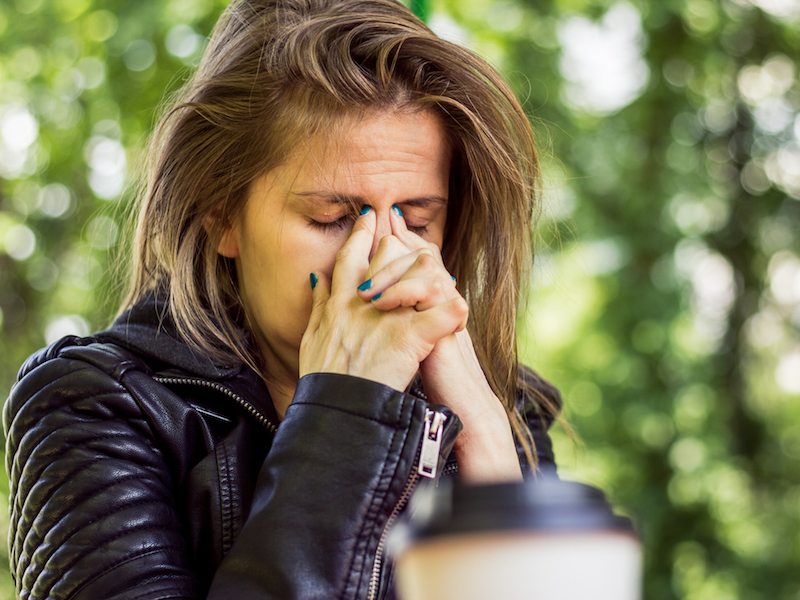
Your nose has been stuffy for weeks, punctuated constantly by boisterous sneezes. You’re feeling tired and somewhat cranky because of lack of sleep due to the continuous pressure in your nose. If it was a cold, it would already have cleared up, so that isn’t the issue.
So you’re options are a sinus infection or allergies as your remaining choices. The difficulty is that the symptoms of both conditions are similar.
Common Symptoms of Sinus Infections And Allergies
Sinus infections typically are not contagious. They develop because something causes inflammation in your sinuses like a cold or similar bug. Mucus and fluids can’t get out when your sinuses are swollen, and all of that accumulated buildup eventually causes infection. The sinus infection itself can cause additional inflammation, meaning symptoms of this particular condition can linger for quite some time.
Allergies, on the other hand, are triggered by exposure to an allergen like tree pollen, dust, or kittens. Your immune system takes defensive action when it misidentifies whatever allergen you are allergic to as an invasive danger. That’s why you begin sneezing and sniffling – your body is attempting to push out the allergen.
The symptoms of allergies and a sinus infection have like symptoms in spite of the very different causes.
Symptoms usually include:
- Fatigue
- Headaches
- Sneezing
- A runny or stuffy nose
Itchy eyes, red eyes, and wheezing are some symptoms that are only connected to allergies.
Some symptoms that are only related to a sinus infection include fever, a swollen and painful face, bad breath, post-nasal drip, headache pressure (sometimes with a toothache), and thick dark mucus.
Sinus infections and allergies can feel quite similar, so if you have any doubt, it’s a good idea to come see us to find out for certain.
If you’re trying to figure out the source of your sneezes, it might be worth paying specific attention to when your symptoms manifest. A sinus infection will usually progress and decline over time – but the feeling of the symptoms will most likely be fairly consistent on an hour-by-hour basis (at least broadly speaking). That won’t always be true for allergies which are usually in response to the presence of an allergen.
If your runny nose or sneezing worsens when you perform specific tasks (such as gardening or cleaning) or when you go outside, that could be a good sign you’re dealing with allergies. Also, if a particular time of year seems to always be accompanied by a runny nose and sneezing that would also indicate the presence of seasonal allergies. Of course, allergies can also cause a sinus infection and you should get it checked out if your symptoms don’t get better.
A prescription for steroids or a course of antibiotics are common therapies for a sinus infection. On the other hand, you could end up using an over-the-counter medicine for allergies. Your body’s own immune system might eventually resolve a sinus infection. Allergies can be trickier to treat.
If you have recurring sinus infections your solutions may include surgery to fix structural problems in your nose (like a deviated septum).
It’s Up to Your Doctor
Self diagnoses doesn’t work. Give us a call if you have recurring congestion or sinus pain or pressure.